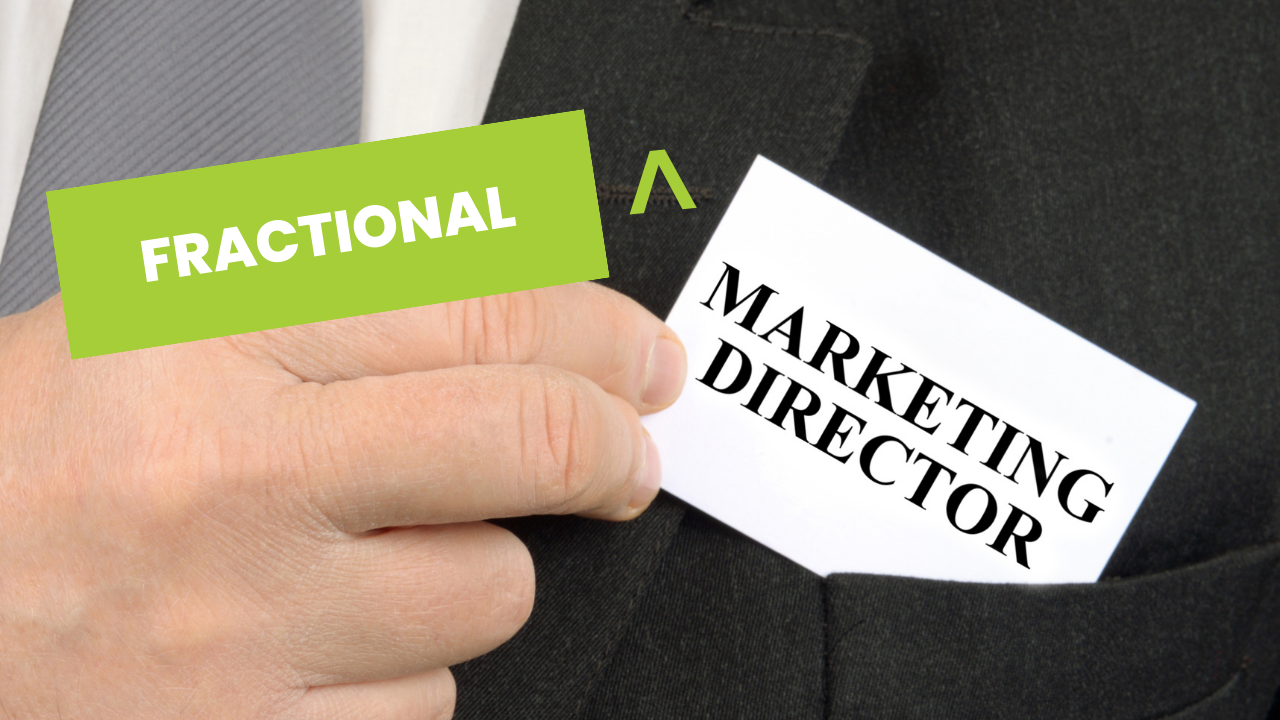
Why hire a fractional marketing director? My hot take (with $, because I know you're curious)
Aug 25, 2023Speaking with so many companies, you start to hear the same things over and over. For me, as a marketing consultant, the one thing they all have in common is a version of this:
"We're ready to shamelessly promote ourselves and get to the next level, but we don't know what to do, how to manage all the moving pieces, and don't have the internal bandwidth to do it ourselves. Help!"
If this is you, your first reaction might be to hire a senior level employee. Except you don't have the budget for the salary of an experienced professional at that level (more on that below).
There’s a solution, and that is: bringing on a fractional marketing director.
I personally was a full-time marketing director for many years, and now position myself as a fractional marketing director, so have firsthand experience on both sides of the equation.
Below I break down the benefits, and why you should consider hiring one.
But first, what does “fractional” mean?
Borrowed from the world of finance (i.e., fractional CFO, fractional bookkeeper) and other areas, a fractional marketing director is a part-time role responsible for strategy and implementation.
They can be a contractor or on payroll as an employee. If they work on monthly retainer like I do, they handle the same tasks each month over a long timeframe (multiple months to years).
They’re a member of your team, but not working the standard 40-hour workweek for you. They may come to the office, may do hybrid in-office and virtual, or virtual only.
A fractional marketing director also will work for other companies than just yours, just like a fractional CFO or bookkeeper would do.
Why not just hire a full-time marketing director?
As I alluded to, the biggest factor is cost. Marketing director roles typically start at the 6-figure mark (any less and you're getting less qualified people, which is ok for some scenarios, of course, but not guiding the future of your company's growth).
So a fractional one costs—you guessed it—a “fraction” of that. The exact cost ranges by industry, experience level, amount of time they're devoting to your company, and scope of work.
(Side note: I love interns! I'm not saying never hire entry-level people. More junior roles are nice in many cases (especially since there’s ample funding available for young workers, here in Canada anyway), but it shouldn’t be a replacement for an experienced person. If you do want to benefit from an intern, consider one that can work with/under the guidance of a fractional marketing director. They can train them and teach and motivate, plus the strategy will be strong.)
The second part is that some companies don't always have the consistent volume of work needed to fill a traditional 9-5, 5-days per week role.
On the flip side, why not just hire a digital marketer / social media specialist / designer / writer?
If you want to manage several vendors, this is an option, but most find it too time-consuming to oversee them and make sure they’re working toward the same goals. It’s also likely to cost more when you add up all your vendor fees.
Additionally, from experience, there tends to be a “too many cooks in the kitchen” situation. This can lead to confusion on timelines, scope, implementation, and more.
Bringing on a digital marketer could be suitable, but typically they work across multiple different industries and company types and may not know the nuances of your sector.
They also may lack the strategy, or may be limited in terms of services they provide. For example, a digital marketer might not be able to provide full support for, say, a trade show or running your CRM.
Finally, your run-of-the-mill marketer or social media specialist likely doesn’t “speak science.” This means more review time and idea generation for you = not ideal, you’re busy enough already! (This is my personal differentiator, which I consistently hear from my clients that they value😊)
Who should consider a fractional marketing director?
It’s ideal for companies earning revenue generally between $500K to multi-millions annually, though it could be lower or higher.
Using back-of-the-napkin math, if you’re aiming to spend the common 15% of revenue on payroll, and your annual revenue is $1 million, a full-time marketing director would take up a huge chunk of what you budgeted for payroll.
Of course, consult with your financial and accounting advisors about this.
What does a fractional marketing director do?
A fractional marketing director will work with you on a long-term basis, similar to an employee, on strategy and implementation. Using my own work life as an example, in a given day they might be:
- Having calls with you and your team
- Writing, designing, and scheduling social media posts
- Planning your fall trade show
- Promoting and creating your next webinar
- Designing your print and digital marketing materials
- Writing and designing email workflows
- Leveraging your CRM to strategically contact customers and subscribers
- Reaching out to event organizers to pitch your scientists as speakers
The list goes on!
Where do you find a fractional marketing director?
Search LinkedIn, ask your trade associations for referrals, ask people in your network, do some digging on who people in your industry use. You can find them at conferences, trade shows, committees in your sector, and elsewhere.
Look for someone with sector experience, an eye for design, and an ability to comprehend science because in technical industries, it matters!
When SHOULDN’T you hire a fractional marketing director?
Admittedly, it’s not for every business.
If your marketing needs exceed what one person can do on a part-time basis, and/or you require a team to implement the volume of work, you might decide to hire a marketing director or even CMO (chief marketing officer) if you have the budget.
The next phase from that is building out a team by adding junior-level employees or interns to support the marketing director in implementing everything. Large companies have much greater needs than that, but we’re speaking of the small to medium businesses here.
The bottom line: hiring a fractional marketing director can bring many benefits for less cost (and depending on who you bring on, more expertise and experience) than hiring an employee. It’s a great, and probably under-utilized, solution for growing companies in the sciences.
If you're curious about building out the marketing function of your company, I dedicated an entire section to it in my book, Scientist to CEO! (Think of it as the $20 version of my entire marketing consulting framework, which I’ve used successfully for the past 15 years in my career 😊).



